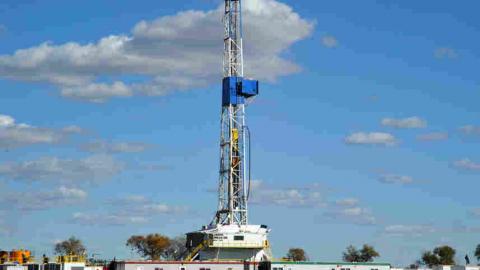
(Disclosure: Our firm and our clients' SMA accounts are long various energy contracts, ETFs, and equity positions linked to the oil and gas space.)
This morning, CNBC posted an article titled "Why oil prices haven't skyrocketed on Middle East supply fears - yet." The article clearly outlines why oil prices have failed to rise in a spectacular way since Iran's act of aggression against Israel. The article says:
For some analysts, the reason crude prices have yet to move even higher is because the oil market is short. This refers to a trading strategy in which an investor hopes to profit if the market value of an asset declines.
"There is a very large short position, not only in oil, you [also] see it in equities. In general, the investors don't like this space. Why? They are concerned about a big oil supply glut next year. [However], when we look at the situation today, it is starkly different. Inventories are low, curve is backwardated, demand in middling, it's not great but now you have [China's] stimulus package on top of that, and you still have the OPEC production cuts," says Jeff Currie, chief strategy officer of energy pathways at Carlyle.
For well over a year, my investment thesis has been that there are certain "nefarious" forces shorting physical commodities for the purpose of keeping price inflation at bay. This CNBC article provides support for my thesis in stating that the only seemingly logical reason oil hasn't appreciated more is simply a matter of investor sentiment and nothing to do with market fundamentals. Although they credit a different motive, the result is the same. Commodity markets are being suppressed by Wall Street.
While Wall Street's shorting activity has served the FED's fight against inflation, there is one glaring issue with shorting commodity futures. In the event there is a shortage, the short-seller must deliver the commodity. And, obviously, Wall Street banks are not capable of producing or delivering any physical commodity. Historically, the only market participants who would consistently short a commodity were commodity producers who had the physical commodity on hand to deliver if required. If, at some point, a true shortage situation arises, the resulting short-covering could push prices to unforeseen heights.
When a short-seller does not have the commodity to deliver, it is called being "naked short". In the movie "Trading Places", there is a reason the storyline required Billy Ray Valentine and Louis Winthorpe to be naked short OJ contracts, which was, being naked short is far and away the riskiest position one could take in the capital markets. Billy Ray and Louis did not have any frozen concentrated orange juice in their back pocket, just the insider knowledge of a government crop report.
Currently, there are a lot of naked shorts in the energy space, and I can attest there are naked shorts in plenty of other physical commodities as well. Perhaps, when the tide goes out, we'll see who the naked shorts are.
